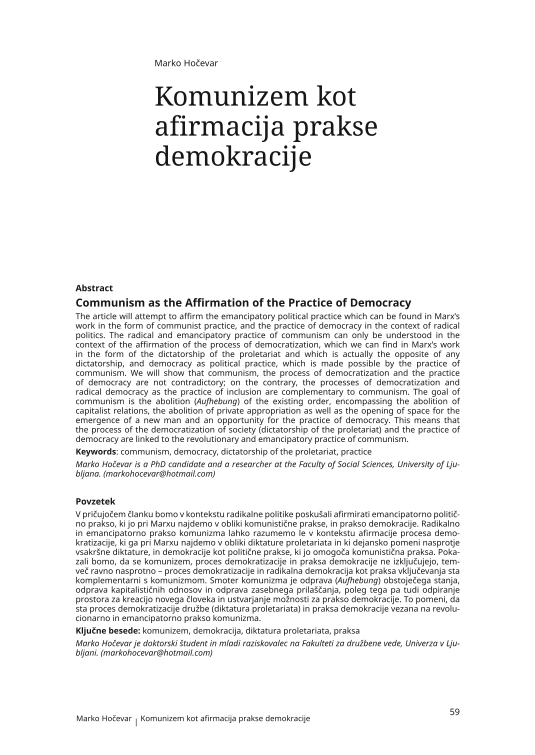The article will attempt to affirm the emancipatory political practice which can be found in Marx’s work in the form of communist practice, and the practice of democracy in the context of radical politics. The radical and emancipatory practice of communism can only be understood in the context of the affirmation of the process of democratization, which we can find in Marx’s work in the form of the dictatorship of the proletariat and which is actually the opposite of any dictatorship, and democracy as political practice, which is made possible by the practice of communism. We will show that communism, the process of democratization and the practice of democracy are not contradictory; on the contrary, the processes of democratization and radical democracy as the practice of inclusion are complementary to communism. The goal of communism is the abolition (Aufhebung) of the existing order, encompassing the abolition of capitalist relations, the abolition of private appropriation as well as the opening of space for the emergence of a new man and an opportunity for the practice of democracy. This means that the process of the democratization of society (dictatorship of the proletariat) and the practice of democracy are linked to the revolutionary and emancipatory practice of communism.




